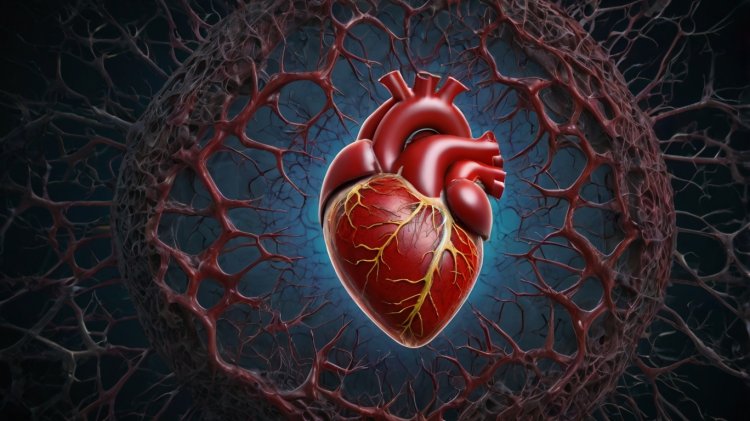Comprehensive Guide to Heart Disease: Types, Symptoms, Causes, and Prevention
Explore an in-depth guide to heart disease, including its types, symptoms, causes, risk factors, diagnosis, treatments, and prevention tips for a healthier heart.

Introduction
Heart disease is the leading cause of death globally, impacting millions of lives annually. While it cannot be cured or reversed, medications, medical procedures, and lifestyle modifications can alleviate symptoms and improve quality of life. This article delves into various facets of heart disease, from its types and symptoms to prevention and treatment strategies.
Types of Heart Disease
Heart disease is a broad term encompassing multiple cardiovascular conditions. Key types include:
1. Arrhythmia
An abnormal heart rhythm, arrhythmia manifests as either a rapid or slow heartbeat. Common symptoms include palpitations, dizziness, and fainting.
2. Atherosclerosis
This condition occurs when arteries narrow due to plaque buildup, reducing blood flow. Symptoms include fatigue, chest pain, and leg weakness.
3. Cardiomyopathy
Characterized by the thickening, stiffening, or weakening of the heart muscles, cardiomyopathy often results in shortness of breath, swelling, and fatigue.
4. Congenital Heart Defects
Heart problems present at birth, these defects vary from mild to severe and may cause cyanosis or swelling in extremities.
5. Coronary Artery Disease (CAD)
Caused by plaque buildup in the arteries, CAD can lead to chest pain, shortness of breath, and heart attacks.
6. Heart Infections
Conditions like myocarditis and endocarditis involve inflammation of the heart muscle or inner lining due to infection.
Symptoms of Heart Disease
General Symptoms
Common symptoms across most types of heart disease include:
-
Chest pain
-
Shortness of breath
-
Fatigue
-
Swelling in legs, feet, or abdomen
Symptoms in Women
Women may exhibit atypical symptoms such as:
-
Anxiety
-
Indigestion
-
Fatigue
These signs often overlap with conditions like menopause and anxiety, complicating diagnosis.
Causes of Heart Disease
Arrhythmia Causes
-
Diabetes
-
Coronary Artery Disease
-
High blood pressure
-
Certain medications
Congenital Heart Defect Causes
-
Genetic factors during fetal development
-
Undiagnosed structural changes in the heart
Cardiomyopathy Causes
-
Genetic predispositions
-
Chronic conditions
Heart Infections
-
Bacterial, viral, or parasitic infections
-
Untreated systemic infections
Risk Factors
Several factors increase the likelihood of developing heart disease, categorized as controllable and uncontrollable:
Controllable Risk Factors
-
Smoking
-
Obesity
-
High cholesterol and blood pressure
-
Physical inactivity
Uncontrollable Risk Factors
-
Family history
-
Ethnicity
-
Age
Diagnosis of Heart Disease
Initial Assessments
-
Physical examinations
-
Blood tests for cholesterol and inflammation markers
Noninvasive Tests
-
Electrocardiogram (EKG)
-
Echocardiogram
-
Stress tests
-
Heart MRI
Invasive Tests
-
Cardiac catheterization
-
Coronary angiography
Treatments for Heart Disease
Lifestyle Modifications
-
Heart-healthy diet (e.g., DASH diet)
-
Regular exercise (30-60 minutes most days)
-
Smoking cessation
-
Stress management
Medications
Prescribed drugs may include:
-
Beta-blockers
-
ACE inhibitors
-
Blood thinners
Surgical Interventions
In severe cases, procedures like stent insertion or bypass surgery may be necessary.
Prevention Strategies
Healthy Blood Pressure and Cholesterol Levels
-
Maintain a blood pressure of under 120/80 mm Hg
-
Monitor and manage cholesterol levels
Adopting a Heart-Healthy Lifestyle
-
Regular aerobic exercise like walking or swimming
-
Balanced diet low in saturated fats and high in fiber
-
Avoiding smoking and excessive alcohol consumption
FAQs
1. What is the connection between heart disease and hypertension?
Hypertension forces the heart to work harder, leading to thickened heart muscles and narrowed arteries, which increases the risk of heart disease.
2. Can heart disease be cured?
Heart disease cannot be cured but can be effectively managed with medications, lifestyle changes, and medical procedures.
3. Is sinus bradycardia a sign of heart disease?
Not necessarily. Sinus bradycardia is often a sign of good heart health in athletes but can indicate issues in some cases.
4. What are safe exercises for heart health?
Walking, swimming, and cycling are great options. Consult your doctor to ensure safety if you have pre-existing conditions.
5. Why are beta-blockers used for heart disease?
Beta-blockers reduce heart rate and blood pressure by blocking adrenaline, improving heart function and preventing complications.
Conclusion
Heart disease remains a leading health concern worldwide, but early detection, lifestyle adjustments, and medical interventions can significantly improve outcomes. By making heart-healthy choices today, you can ensure a longer, healthier life.










